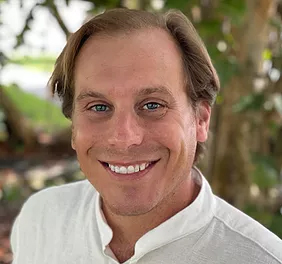
Image courtesy Kevin Schwartz, all rights reserved.
As an expert on the culture, history, and politics of the Middle East, Kevin Schwartz noticed something as he read the Wikipedia articles on September 11, the War on Terror, or those related to Iran’s political and military involvement in the Middle East.
“The articles tend to focus on describing military operations, rather than provide a fuller picture of the less obvious cultural and political aspects,” Kevin says.
It’s a common problem across Wikipedia, where the volunteer community includes many military history experts — but few experts like Kevin. He received his Ph.D. in Near Eastern Studies from the University of California, Berkeley. Kevin writes academic articles and published a book on the literature, culture, and history of Iran and the Persianate world, as well as opinion pieces on US foreign policy in the Middle East and Iran for US and international outlets, such as Al Jazeera, The Hill, Responsible Statecraft, and others. Kevin also co-founded and co-directs the 9/11 Legacies project, which launched in September 2021.
“The project seeks to map the ways in which the Global War on Terror has impacted language, societies, and politics around the world, focusing on many of the untold and under-studied legacies, particularly as they relate to countries beyond the US, Afghanistan, and Iraq,” Kevin explains.
This expertise is what led him to the ReThink Media Wiki Scholars course Wiki Education ran — a course designed to bring subject matter experts like Kevin to Wikipedia’s articles about 9/11 and other related topics, ahead of the 20th anniversary of the event.
Kevin primarily edited three articles. Two, Liwa Fatemiyoun and Holy Shrine Defender, are related to his scholarly work.
“In both cases, I tried to add more texture and nuance, primarily by focusing on the non-military aspects of the entries,” he says. “I also sought to complicate some of the aspects of these topics that often mimic state-sponsored narratives and talking points, such as that of Iran and the United States.”
The third article he worked on was the War on Terror article itself.
“Along with the article on the 9/11 attacks, this is probably one of the most heavily read on the topic of the 9/11 and global war on terror (GWOT) era. The challenge here was different, namely, how to present a coherent entry and narrative that didn’t veer off into too many directions, so much so that the purpose of the entry and its topical focus is lost,” he says. “Someone in the talk history page called this a ‘coat rack’ article, which is absolutely correct: many editors simply ‘hung’ reams of material about tangential (or less important) topics related to the GWOT in this article.”
As Kevin started editing, he found several challenges. Some sections were overly detailed, with information that should be in separate articles. Other sections included text copied and pasted from the main article on that topic.
“The first challenge was trimming these superfluous aspects of the entry and (when applicable) returning the information to its natural place (i.e., main article). The second aspect was to reconfigure the internal organization of the article. A lot of information on similar topics was scattered throughout the article, so I brought it together in one place and rearranged some of the subheadings,” Kevin says. “Finally, like the articles on Iran, I tried to add some information that was less focused on describing military operations related to the GWOT and, instead, add information related to its cultural and political impacts.”
As many Wikipedians know, this kind of real editing work to an article is hard! It takes a subject matter expert like Kevin with a good grasp of the literature about a topic to be able to identify what’s extraneous detail, what belongs in a sub article, and what belongs in the main article. His expertise in the topic gave him the insight in what the article should say — and Wiki Education’s Wiki Scholars course gave him the skills to do the Wikipedia editing part.
“Approaching Wikipedia as an editor can be daunting,” Kevin says. “There is certainly a start-up cost in learning how to edit articles, interacting with other editors, and understanding Wikipedia’s mission and policies. The class beautifully helped us understand what at the outset seemed like an arcane and impenetrable world.”
While the course has now wrapped up, Kevin has continued editing. He says he likes the instantaneous nature of Wikipedia, especially in contrast to academic articles that sometimes take months to get published. He encourages more experts like him to get involved in editing Wikipedia.
“As academics and researchers, one of our main tasks is to present detailed and well-researched information on a topic in the most coherent and accessible way to educate people,” Kevin says. “Wikipedia and its mission, dovetails quite nicely with this professional path and skill-set.”
Image credit: Cpl Colby Brown, Public domain, via Wikimedia Commons
